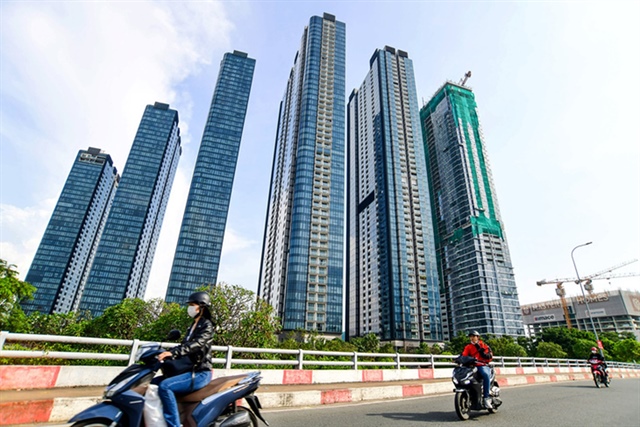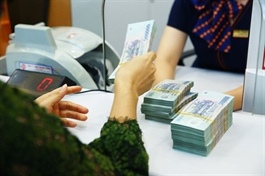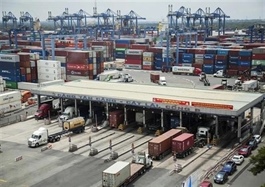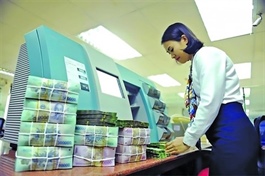Ho Chi Minh City should aim to become fintech hub: expert
Ho Chi Minh City should aim to become fintech hub: expert
As Vietnam is not a trailblazer in the development of international financial centers, the country should develop a fintech center, which combines finance and technology, in Ho Chi Minh City instead of simply an international financial center, said Dr. Nguyen Huu Huan, head of the Faculty of Finance at the University of Economics Ho Chi Minh City.

Ho Chi Minh City is eligible to become an international financial center. Photo: Quang Dinh / Tuoi Tre |
The country should make it different to attract investment and achieve success, the expert proposed.
Once becoming a fintech hub, Ho Chi Minh City can lure fintech firms across the world.
In reality, Vietnam finds it difficult to attract large financial institutions as regulations and free capital flows in Vietnam are not as favorable as in Singapore or other countries, Huan said.
Vietnam has high-speed telecom infrastructure and fintech apps, and is capable of accepting new technologies, such as blockchain, e-currency, and digital currency, which open up ample opportunities for the country to become a fintech hub in the region and the world as a whole, the expert added.
The development of an international financial center in Ho Chi Minh City is meaningful to the growth of the city and the country as a whole, according to Dr. Tran Du Lich, chairman of the advisory council for the implementation of Resolution 98 comprising special mechanisms for Ho Chi Minh City.
The project is a strategy of the entire country, not only Ho Chi Minh City. The center, when in place, will contribute to boosting the development of the southeastern region and the entire nation.
Ho Chi Minh City is currently a national financial center. Turning it into a regional, and then international financial hub is definitely corresponding to its position, roles and strengths, Lich noted.
To establish and develop a financial center, the city must base on five main factors: manpower, infrastructure, business environment, financial firms, and its reputation.
Ho Chi Minh City holds the potential to become an international financial center.
The government has set up a steering committee to conduct the project. Ho Chi Minh City is also gathering resources and experts to formulate the plan, Lich informed.
The city expects to attract strategic investors, experts, and enterprises specializing in international finance to develop the existing financial center in District 1 and a new center in the Thu Thiem New urban Area in Thu Duc City.
Resolution 98 does not include policies for an international financial center. As a result, Ho Chi Minh City needs another resolution on the international financial center development with many special policies and mechanisms.
According to Dr. Tran Dinh Thien, former director of the Vietnam Institute of Economics, it is not late to establish an international financial center in Ho Chi Minh City, but the country could have done the job earlier.
However, Vietnam will also have advantages when launching the center late as it can access modern financial technologies and choose appropriate models.
To do that, outstanding policies are needed.
Vietnam should take advantage of international knowledge and experiences and choose suitable partners and models, Thien suggested.




























